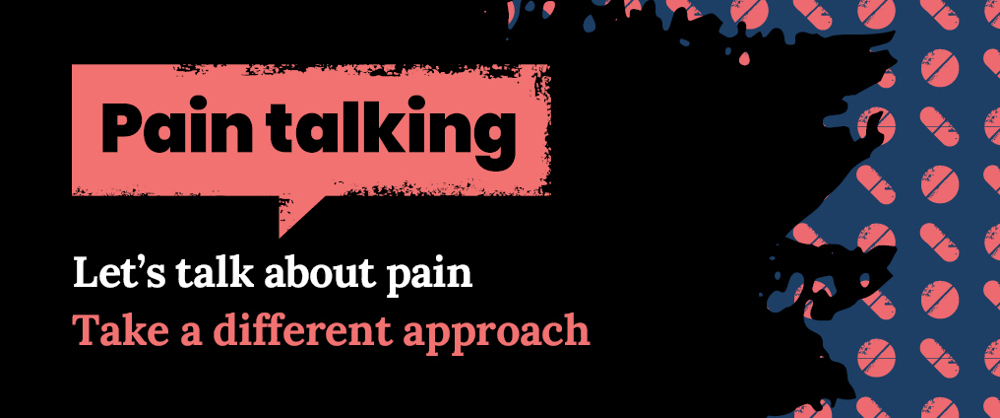
This information has been developed to supplement the information the doctor or healthcare practitioner has already given you.
Date of Issue: March 2025
Review Date: March 2026
If the review date has passed, the content will apply until the next version is published.
This leaflet gives information about opioids. Opioids are a pain medicine. Used for severe pain. Opioids can cause side effects. They also have other risks.
Opioids include codeine, tramadol, morphine and oxycodone.
Opioids can be helpful in the short term. They are not recommended for long term use. Research shows opioids have limited benefit in chronic pain conditions. Learning more about pain and other ways to manage it is useful.
Opioids may help some patients manage a musculoskeletal condition. By reducing pain levels and improving function. They are not recommended for widespread pain conditions such as fibromyalgia.
Risks
Opioids can be misused and cause harm. They are controlled drugs. Meaning they have extra regulations.
Common side effects are feeling sick, constipation, confusion, sleepiness and occasionally vomiting. Less common side effects are itching, sweating, dry mouth, headache, rash or slow breathing.
Opioids can be addictive and not used as prescribed. If you have any worries. Talk to your doctor or pharmacist.
Opioid medicine can cause drowsiness. If sleepy do not driving or operate machinery. It is an offence to do so if unsafe due to medicines.
Opioids can cause respiratory suppression. This is increased when other respiratory suppressants are taken. For example gabapentinoids, benzodiazepines and alcohol.
Opioids also affect other body system. They can cause changes in hormones, immunity and bones. They can increase all over pain. Know as ‘hyperalgesia’.
Tolerance and dependence can develop. This means they stop helping pain. There may be withdrawal effects when not taken.
Opioids can be addictive and not used as prescribed. If you have any worries. Talk to your doctor or pharmacist.
Opioid medicine can cause drowsiness. If sleepy do not driving or operate machinery. It is an offence to do so if unsafe due to medicines.
If problems occur the opioid should be gradually withdrawn.
Opioid Trial
You and your doctor may decide to trial an opioid. This should be a shared decision. There should be a clear plan of the goals of treatment. With regular follow up planned.
An opioid trial can be assessed in one or two weeks. If there is no improvement, the opioid should be stopped.
Opioids should be prescribed at the lowest effective dose. They should continue for the shortest period of time.
Prescribing of opioids requires ongoing review. Initially this is every few weeks, then months. After that at least every 6-12 months.
Any initially benefit may not last longer term.
Withdrawal effects
Stopping opioids may cause withdrawal effects. They can occur 24 to 48 hours after the last dose. They are usually mild and last less than a week. But can be more severe and last longer.
Withdrawal effects include;
Nausea, increased pain, restlessness, flushes, sweating, cramps and diarrhoea.
Reducing the dose slowly will help minimise withdrawal effects.
Overdose
Taking too much opioid medicine is called an overdose. It can be accidental. Overdose is serious. It may cause death.
Signs of an overdose include;
- Confusion or hallucinations.
- Blue or purple lips or fingernails.
- Unresponsive or unconscious.
- Slurred speech.
- Very small pupils in the eyes.
- Heavy or unusual snoring.
- Poor coordination or balance.
If overdose is suspected, seek immediate medical attention. Dial 999.
Medication in chronic pain
Medicines are not always helpful for long term pain.
They can cause side effects and harm.
It is best to stop medicines that are not working or cause problems.
It is helpful to find other ways of managing pain.
A doctor or pharmacist can explain more.
Remember
Do not stop medicines suddenly.
Do not share medicines.
Never take more medicine than prescribed.
Let your doctor or pharmacist know if you take other
medicines or products.
Read the information sheet for each medicine.
Keep medicines out of the reach of children.
Store medicines safely.
Return unused medicines to your pharmacy.
If medicines make you drowsy, do not drive.
Accessible formats
If you require this information in a community language or alternative format such as Braille, audio, large print, BSL, or Easy Read, please contact the Equality and Human Rights Team at: email: fife.EqualityandHumanRights@nhs.scot or phone 01592 729130. For people with a hearing or verbal impairment you can also contact the team through the NHS Fife SMS text service number on 07805800005.
